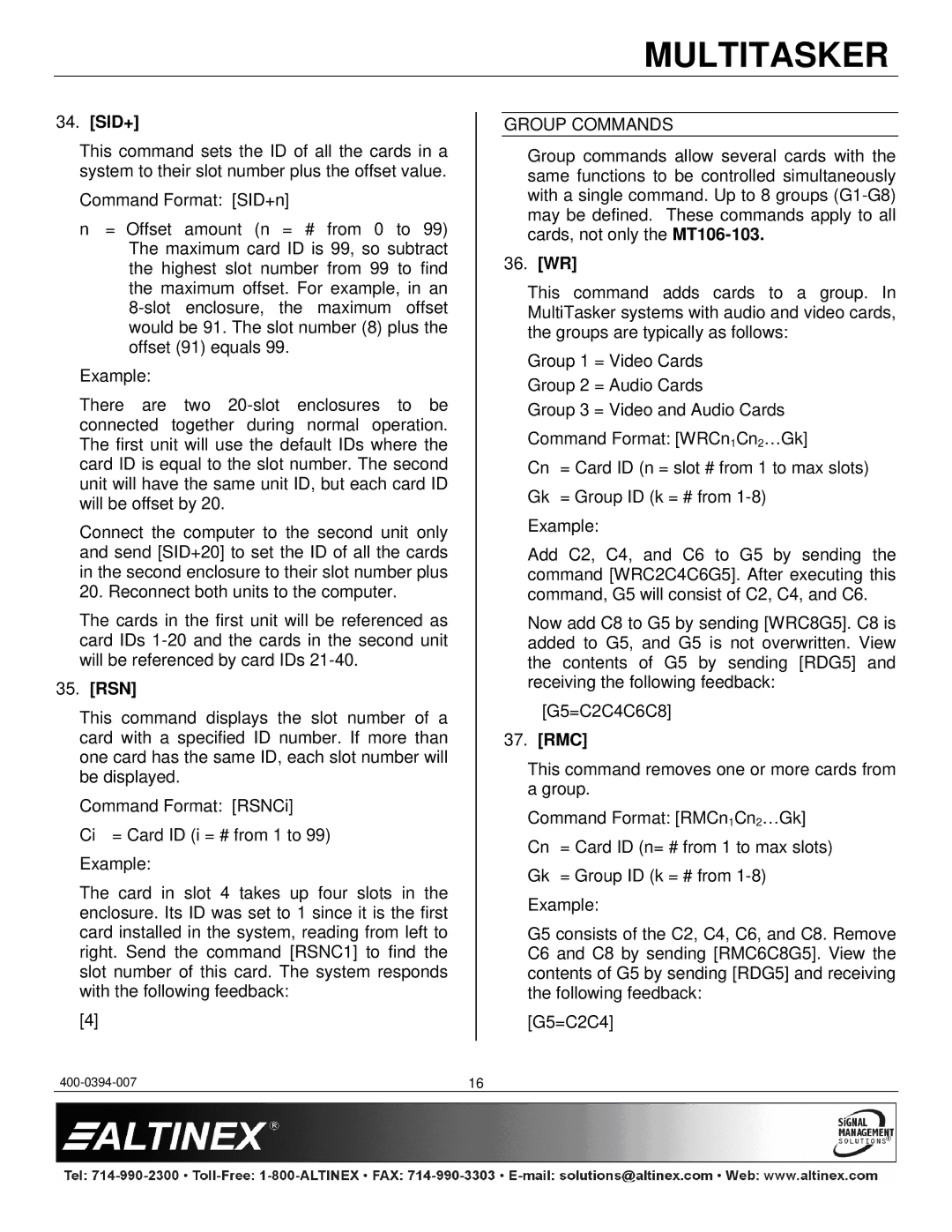
MULTITASKER
34.[SID+]
This command sets the ID of all the cards in a system to their slot number plus the offset value.
Command Format: [SID+n]
n= Offset amount (n = # from 0 to 99) The maximum card ID is 99, so subtract the highest slot number from 99 to find the maximum offset. For example, in an
Example:
There are two
Connect the computer to the second unit only and send [SID+20] to set the ID of all the cards in the second enclosure to their slot number plus 20. Reconnect both units to the computer.
The cards in the first unit will be referenced as card IDs
35.[RSN]
This command displays the slot number of a card with a specified ID number. If more than one card has the same ID, each slot number will be displayed.
Command Format: [RSNCi]
Ci = Card ID (i = # from 1 to 99)
Example:
The card in slot 4 takes up four slots in the enclosure. Its ID was set to 1 since it is the first card installed in the system, reading from left to right. Send the command [RSNC1] to find the slot number of this card. The system responds with the following feedback:
[4]
GROUP COMMANDS
Group commands allow several cards with the same functions to be controlled simultaneously with a single command. Up to 8 groups
36.[WR]
This command adds cards to a group. In MultiTasker systems with audio and video cards, the groups are typically as follows:
Group 1 = Video Cards
Group 2 = Audio Cards
Group 3 = Video and Audio Cards
Command Format: [WRCn1Cn2…Gk]
Cn = Card ID (n = slot # from 1 to max slots)
Gk = Group ID (k = # from
Example:
Add C2, C4, and C6 to G5 by sending the command [WRC2C4C6G5]. After executing this command, G5 will consist of C2, C4, and C6.
Now add C8 to G5 by sending [WRC8G5]. C8 is added to G5, and G5 is not overwritten. View the contents of G5 by sending [RDG5] and receiving the following feedback:
[G5=C2C4C6C8]
37.[RMC]
This command removes one or more cards from a group.
Command Format: [RMCn1Cn2…Gk] Cn = Card ID (n= # from 1 to max slots)
Gk = Group ID (k = # from
Example:
G5 consists of the C2, C4, C6, and C8. Remove C6 and C8 by sending [RMC6C8G5]. View the contents of G5 by sending [RDG5] and receiving the following feedback:
[G5=C2C4]
16 |
